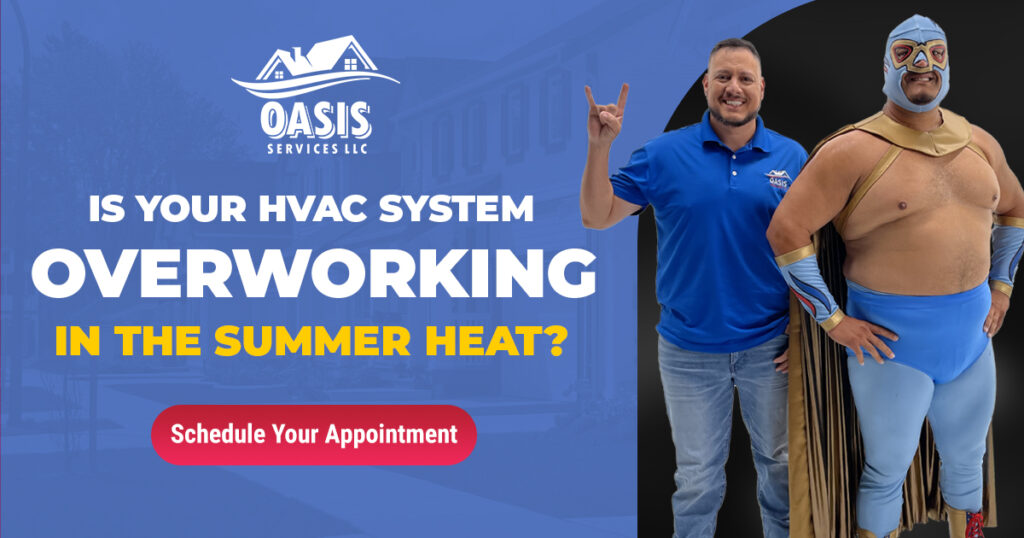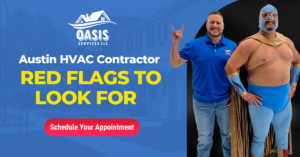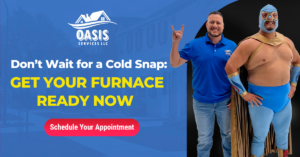Texas summers are brutal and unpredictable, but you can rest assured they’ll be HOT. In these months, your HVAC system becomes the most important appliance in your home. But as temperatures spike, even a good system can struggle—and if it’s overworking, you might be closer to a failure than you think.
At Oasis Services, we’ve seen firsthand how small warning signs can quickly turn into expensive problems. Knowing what to look for can help you take action early—before you’re left sweating it out in the middle of a heatwave.
Why Overworking Happens
Your HVAC system is designed to handle normal summer conditions, but extreme temperatures, poor maintenance, and aging equipment can push it beyond its limits. When that happens, it works harder for longer, consuming more energy and wearing out faster.
An overworked system doesn’t just lead to discomfort—it increases the risk of a full system breakdown. And in the middle of July, that’s the last thing any homeowner wants to face.
But how do you know it’s nearing a critical failure? Well, there’s several signs.
Rising Energy Bills Without Better Cooling
One of the first signs your HVAC system is overworking is a noticeable spike in your electric bill. If your usage habits haven’t changed, but your monthly bill keeps climbing, your system may be struggling to keep up.
This usually happens when the unit runs for longer cycles or runs continuously without reaching the target temperature. It burns through electricity trying to cool a space it no longer handles efficiently.
Constant Running Without Breaks
Your HVAC system should turn on and off throughout the day as it maintains your set temperature. If it’s running constantly—especially during the hottest parts of the day—it may be overcompensating for a deeper problem.
This kind of nonstop operation increases wear and tear, shortens the unit’s lifespan, and can indicate everything from clogged filters and low refrigerant to failing motors and poor insulation.
Inconsistent Cooling or Hot Spots
When one room feels fine but another is sweltering, it’s not just an inconvenience, it’s a red flag. Uneven cooling can mean your system is no longer able to distribute air evenly or maintain adequate pressure across the home.
In some cases, this could be a ductwork issue. In others, it’s a symptom of an HVAC system operating beyond its limit. If the problem spreads over time, your unit could be on its way out.
Warm Air or Weak Airflow
If you feel warm or barely-there airflow from your vents while the system is running, that’s a sign of overexertion—or outright failure. A healthy HVAC system should push cool air strongly and consistently.
Weak airflow can stem from clogged filters, blower motor issues, or a failing compressor. In any case, it means the system is straining to deliver what used to come easily—and that strain will only increase as the heat continues.
Strange Noises or New Smells
Your HVAC system shouldn’t be the loudest thing in your home. Rattling, grinding, buzzing, or whining sounds often point to components working harder than they should, or parts that are on the brink of failure.
Similarly, burning or musty odors are never normal. They can indicate electrical issues, overheating parts, or excessive dust buildup inside the unit. Don’t ignore these warning signs—they rarely go away on their own.
Excessive Humidity Indoors
A properly working HVAC system does more than cool—it also helps remove humidity from the air. If your home suddenly feels sticky, muggy, or damp, it could be another signal that the system is overworked and losing its ability to regulate moisture levels.
High indoor humidity can also lead to mildew, mold, and indoor air quality problems. Catching it early may help you avoid more than just mechanical repairs.
Frequent Cycling or Short Runs
Does your system kick on for a minute or two, then turn off—only to repeat the cycle every few minutes? That’s called short cycling, and it’s a key indicator of an overworked or improperly sized unit.
Short cycling prevents your system from completing a full cooling cycle, leading to poor performance, higher bills, and faster wear. It’s not just a nuisance—it’s a sign your system needs attention now.
Your System May Be Old and Showing Its Age
Even the best HVAC systems don’t last forever. If your unit is over 10–12 years old and showing several of the symptoms above, it’s likely reaching the end of its efficiency curve.
Older systems use outdated technology, lower SEER ratings, and often rely on phased-out refrigerants. They’re more prone to overworking, more expensive to run, and less likely to recover once major issues begin.
What You Can Do About It
If your system is showing one or more of these symptoms, it’s time to act. Start with the basics: change your filter, check your thermostat settings, and make sure vents aren’t blocked. But if the problems continue, don’t wait.
At Oasis Services, we offer summer tune-ups designed to catch small issues before they become big ones. We’ll inspect your system, test its performance, and give you honest feedback about its condition and what options you have.
When It’s Time to Replace
Some systems just aren’t worth salvaging, especially when repair costs keep stacking up and energy bills continue to climb. If we find your system is past the point of tuning up, we’ll walk you through replacement options that make sense for your home, your budget, and your comfort.
Today’s high-efficiency units cool faster, last longer, and cost less to run. And with rebates and financing available, upgrading doesn’t have to feel overwhelming.
You Don’t Have to Wait for a Breakdown—Oasis Is Here
The signs of an overworked HVAC system are easy to miss—until something fails. But if you know what to watch for, you can stay ahead of the problem and avoid that dreaded emergency repair during the hottest week of the year.
Let our team at Oasis Services be your guide. Whether it’s a tune-up, an honest system evaluation, or a total replacement, we’ll help you make the smart call now—so you’re not stuck sweating later.
Book your summer tune-up or evaluation with Oasis Services today. Call (512) 569-5957 or visit atxoasis.com. Your comfort can’t wait—and your system shouldn’t have to either.



